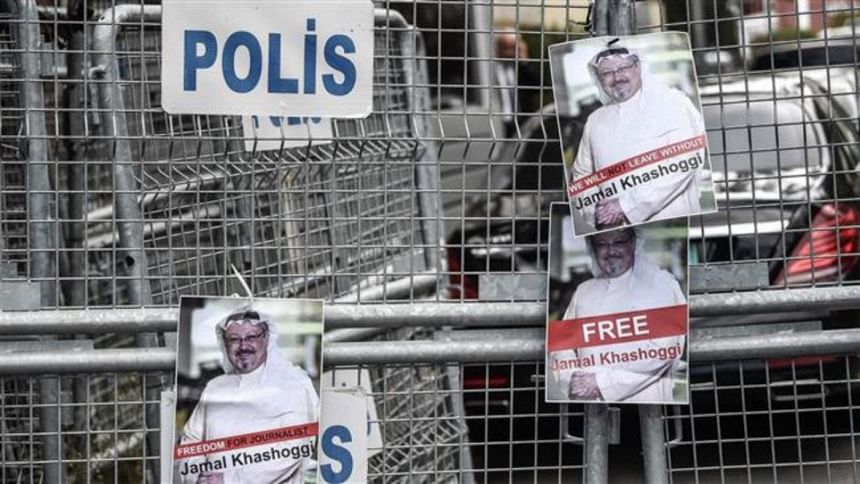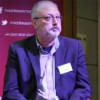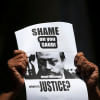Of dissent and critique

Getting rid of a high-profile dissenter of any powerful government is almost invariably "surrounded by mysterious circumstances." The reported murder of Saudi journalist Jamal Khashoggi, a prominent critic of the Riyadh government, last week inside his own country's consulate in Istanbul is no exception. His inexplicable disappearance from the Turkish consulate is perhaps a reflection of a deeper syndrome.
But he must have had a premonition given that he left his cell phone with his fiancée with an advice to call up a certain Turkish official in case he did not return.
The disagreement between the Turkish and Saudi authorities over Khashoggi's status and their differing versions of the episode are revealing rather than being shrouded in mystery.
Saudi Crown Prince Mohammed Salman said, "Khashoggi had left the consulate shortly after he arrived on Tuesday." In stark contrast, the Turkish authorities maintained that "Khashoggi never left the consulate."
The matter is confounded "by the thicket of security cameras around the consulate, monitoring the entrances and perched on the walls of villas nearby." Yet, neither of the two governments released any video in corroboration of their stated positions. In this case though, the onus is on Turkey to come out clean.
On the contrary, to allude to a BBC report, it appears that a 15-man Saudi team had visited the consulate and left it with CCTV footage. A Saudi team was allegedly "sent specifically for the murder", two people with knowledge of the probe said. But they gave no proof to back up their claim. Turkey's Anadolu news agency stated that Istanbul's Public Prosecutor's office had opened a probe into Khashoggi's disappearance.
Political dissidents from Saudi Arabia who have settled in Turkey over the past years will have to be on guard after the vanishing of Khashoggi without trace from the Saudi consulate considered to be a part of his homeland.
The wily and disingenuous treatment of the dissident Saudi journalist on Turkish soil may aggravate the rift between Turkey and Saudi Arabia, both regional powers that have competed for influence in the region.
Importantly, it may complicate Saudi-US relations. Khashoggi used to write for Washington Post, and with panache. The paper ran a blank column last Friday under Khashoggi's name as a mark of reverence.
"If reports of Jamal's murder are true, it is a monstrous and unfathomable act," Fred Hiatt, the director of the Post's editorial page said in a statement. "Jamal was—or we hope, is—a committed, conscientious journalist. He writes out of a sense of love for his country and deep faith in human dignity and freedom."
Khashoggi may have been considered "especially dangerous by the Saudi leadership," analysts said, adding "his criticism of the Royal family and its vast powers was delivered from his self-imposed exile in the United States," and could not be disregarded as the complaint of a long-term dissident.
The Saudi-US relations are deeply entrenched, multi-layered and mutually serving. Saudi action in Yemen apparently received Pompei's certification: "The Saudis were undertaking demonstrable actions to redress civilian casualties in Yemen caused by air strikes with US-provided weapons."
The critics in Congress were dissuaded by the administration from stopping US military sales and assistance to the KSA. For the Saudi monarchy is the world's largest purchaser of American defence hardware as well as key partner in "White House's plans to bring Iran to heel and forge an Israeli-Arab alliance."
At the same time, Trump bragged about telling King Salman, "Your monarchy wouldn't survive for even two weeks if it weren't for the presence of American soldiers." Therefore, you ought to pay for their services, he added. He revels in "lots of beautiful military equipment" he keeps the Saudis supplied with, surely not for free!
Le Figaro, the French paper, issued a critique a shade softer than a dissent but just as powerful an opinion on a populist government. Gerard Collomb, Interior Minister in Macron's cabinet, had in recent weeks been critical of Macron and had spoken of "a lack of humility" in his administration.
He also has taken issue with Macron's policies which he thinks favour the rich, and the French leader's personal manner is often described as "aloof and arrogant".
There is bit of a perceived conflict of interest prompting his resignation; he didn't want his interior ministry to be destabilised by his decision to run again for the Mayor of Lyon.
The two stories, one of an unexplained disappearance of a "dissenter", and another of a civilised critique have made news headlines overseas, thought-provoking as they have been.
Shah Husain Imam is Adjunct Faculty, East West University, a commentator on current affairs, and former Associate Editor, The Daily Star.
Email: [email protected]

 For all latest news, follow The Daily Star's Google News channel.
For all latest news, follow The Daily Star's Google News channel. 








Comments